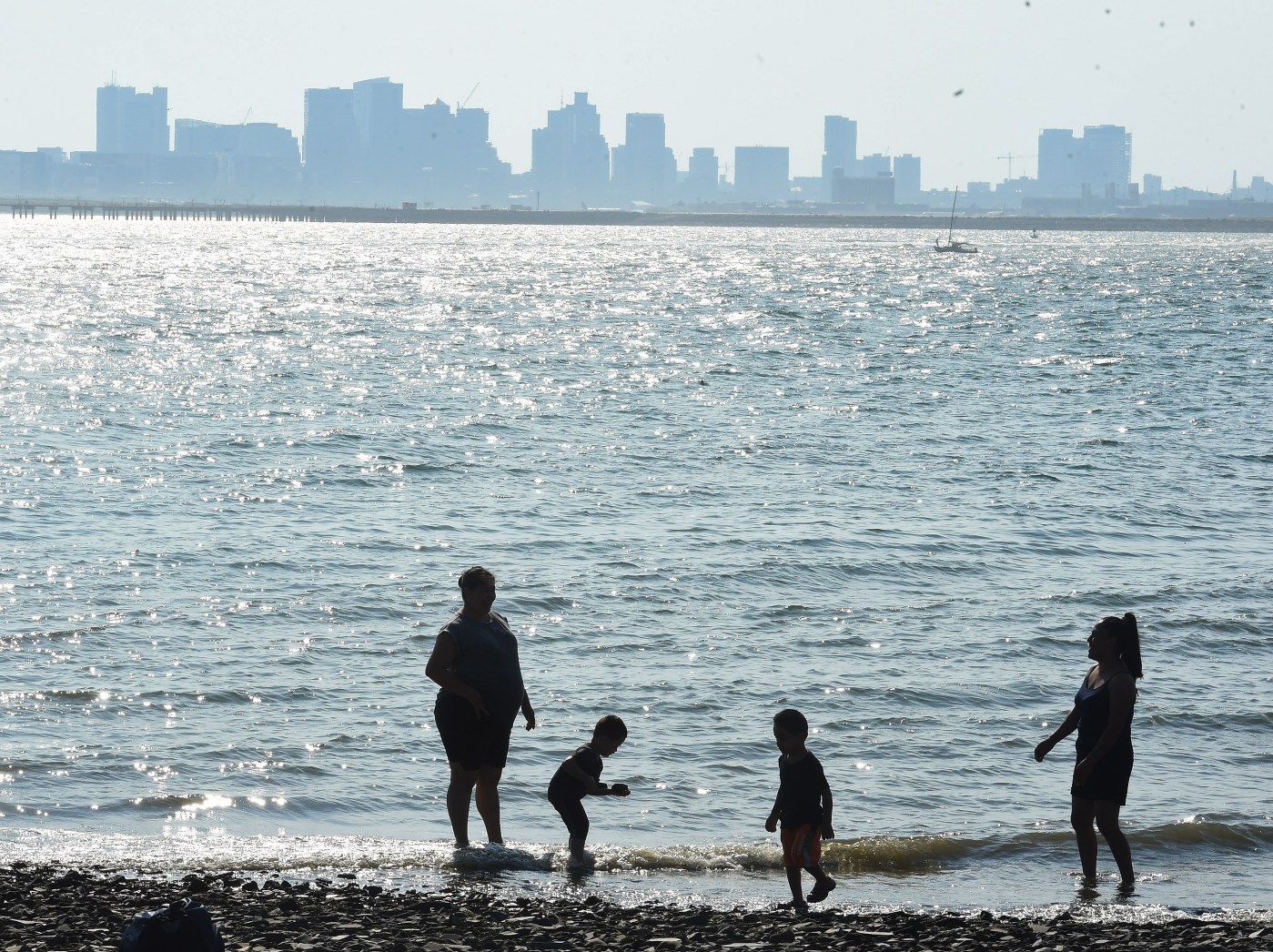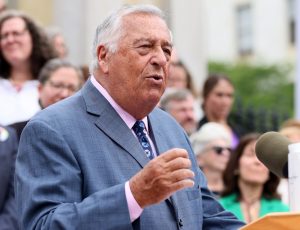
As mayor pitches higher business taxes, analysis shows Boston favors homeowners at among highest rates in the country
Amid the mayor’s push for higher commercial tax rates and talk of how residents may otherwise be priced out from sky-high taxes, a new report places Boston third among U.S. cities with the most preferential property tax systems for homeowners.
A Lincoln Institute of Land Policy report that examined the largest cities in all 50 states found that Boston, which is seeking to shift more of the tax burden onto businesses beyond what is allowed by state law, already taxes homeowners at among the lowest rates in the country, behind just Charleston, South Carolina and Honolulu, Hawaii.
The report points to Boston’s high home values and existing tax classification shift — which, per state law, allows cities to shift up to 175% of the property tax burden from residents to businesses, to provide lower taxes for homeowners — as the factors contributing to its 0.5% effective property tax rate on a median-valued home in 2023.
To provide further residential tax relief, Boston’s mayor and City Council each year typically adopt the maximum residential exemption, which excludes a portion of a qualifying homeowner’s property value from taxation.
By comparison, the average effective property tax rate was 1.29% in 2023 for the 53 large cities studied, which included Washington, D.C. and two cities apiece in Illinois and New York since Chicago and New York City property taxes are so different from other parts of those two states, the report states.
Boston was among just eight cities with property tax rates at half the study average or less, along with Honolulu, Charleston, Salt Lake City, Denver, Nashville, Boise, and Cheyenne, West Virginia.
The study also looked at how preferential property tax systems are for homeowners throughout the country, finding that Boston ranked third again, behind just Charleston and Honolulu, in that category.
In Boston, the commercial sector is taxed at a 4.34% higher rate than homeowners, when calculating a commercial-homestead ratio that compares the rate on a $1 million commercial building to a median-valued home.
The average commercial-homestead classification ratio among the 53 cities studied was 1.86, the report states.
While Boston gives among the highest preference to homeowners, the commercial property tax rate there is not among the highest in the country, and ranks roughly in the middle of the pack among the study sample.
Boston Mayor Michelle Wu filed a home rule petition earlier this year that seeks to temporarily shift more of the tax burden from homeowners to commercial property owners, beyond the 175% allowed by state law.
Her petition, which has been heavily criticized by the business sector, seeks a change that would raise that limit to up to 200% next year. The shift would gradually decrease each year before returning to the standard rate in the fifth year.
Related Articles
Mayor tours summer gardening program and outdoor classroom with Boston students
Big Brother is watching you: Boston Police surveillance detailed in new report
Boston Mayor Michelle Wu is pregnant with third child, will seek reelection
Boston City Council looks to get grasp on ‘reckless’ moped driving impeding quality of life
Boston’s White Stadium renovation to be focus of trial next March, city attorney says
When testifying for the bill before the Legislature’s Joint Committee on Revenue, the mayor said that if the higher shift were not to be adopted, homeowners could be facing a 33% increase in property taxes next year, which she said may price some residents out of the city.
Wu received pushback on that figure from House Committee Chair Mark Cusack, who said the year-over-year increase would be 16.5%, and that the 33% increase would be seen from the second to third quarter bills.
Nicholas Ariniello, the city’s commissioner of assessing, said the average single-family tax bill was $5,522 with the residential exemption in 2024, and would increase to $6,432 next year, a 16.5% increase, if the legislation were not to pass.
The average single-family tax bill with the residential exemption increased by 7.9% this year.

